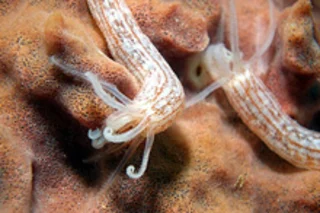As if cow burps weren’t enough to worry about as the earth’s atmosphere heats up, scientists have now discovered that aquatic animal belches might be another source of greenhouse gas emissions. When nitrate is present in water, worms, mussels, freshwater snails and other underwater creatures emit nitrous oxide as a by-product of digestion. The animals obtain their food from soil, which contains bacteria that survive "surprisingly well" in the gut and are thought to convert nitrate in the water into nitrous oxide gas. While nitrous oxide is known for its use as dentists' laughing gas, it's also 310 times more effective at trapping heat in the atmosphere than carbon dioxide. Earthworms also emit the gas because of soil rich in both nitrogen and the microbes that convert it, but the new study illustrates that marine mammals may be pumping it out as well. The blame, however, lies not with the ...
Move Over, Cow Burps! Snail Belches Found to Produce Greenhouse Gas
Aquatic animal belches contribute to greenhouse gas emissions, highlighting the impact of nitrate pollution on global warming.
More on Discover
Stay Curious
SubscribeTo The Magazine
Save up to 40% off the cover price when you subscribe to Discover magazine.
Subscribe













